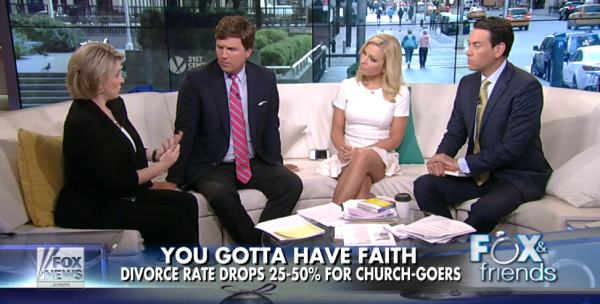Our churches face a demographic crisis.
Young people are leaving, even the Southern Baptist Convention is starting to lose members, and when you drill down even deeper — comparing church attendance with population growth — the picture grows even more bleak. Simply put, when America’s fastest-growing religious segment is “nonreligious,” we have a problem. The Barna Group (the gold standard in evangelical research) recently compiled the results of a number of national studies and published a list of six reasons why young evangelicals leave the church: the church is overprotective, their experience of Christianity is shallow, churches seem antagonistic to science, the church’s approach to sexuality is judgmental and simplistic, they wrestle with the exclusivity of Christianity, and the church feels unfriendly to those who doubt.
Those answers are unsurprising — unsurprising because those are exactly the answers one would give leaving the kinds of churches that dominate modern evangelicalism — churches that combine nominally traditional doctrine with shallow commitment, rampant divorce and extramarital sex — all against a backdrop of extreme cultural hostility. In other words, we’re about 95% like the surrounding culture and hated for the 5% deviation.
But one of the top four churches not only shows consistent growth, but growth continues year by year and decade by decade. Mormons, living in the same country and culture that Baptists do, just keep growing their church. Why? I propose six reasons:
1. Mormons have bigger families. This is the easiest and simplest explanation. But it’s far from the entire story. In fact, if family size were determinative, then every church in America would be growing at a rate that exceeded general population growth. After all, the birth rate of religious families generally exceeds that of nonreligious families, and — all other things being equal — while Mormons would grow slightly faster, we would all grow. Instead, church after church shrinks or remains basically steady in spite of the higher birth rate. Mormons start with a bigger baseline family, but then they tend to hold on to their kids while evangelicals often do not.
2. Mormons have lower divorce rates. While regular church-goers divorce less than secular couples, Mormon marrying Mormons have the lowest divorce rate of any major religious group. It goes without saying that families that stay together tend to pray together (or is that the other way around?) There are few things more demoralizing to a young Christian than seeing his Christian parents destroy their own marriage and destroy their own kids’ childhoods in a blaze of selfishness, lust, and pride.
3. Mormons evangelize. Who hasn’t met a Mormon missionary? My wife used to debate them at the doorstep, but ever since we launched Evangelicals for Mitt, made many new Mormon friends, and began to experience a constant flow of vile hate from a small but dedicated anti-Mormon fringe, we now welcome them into our home, offer them rides in the rain, and generally get to know young people who experience a very, very different young adult rite of passage than your typical evangelical. A Mormon mission is a sacrifice — a deep sacrifice — especially compared to the lives of evangelical youth. So not only does evangelism win converts, it also strengthens the faith of the evangelist.
4. Mormons are orthodox. What? No self-respecting evangelical can call Mormons “orthodox,” right? Well, of course they’re not “orthodox” in the “Apostles’ Creed, no books but the Old and New Testament” sense, but they are orthodox within their own faith tradition. In other words, members of a Mormon church tend to know and believe their faith. Go to a Baptist church (or my own Presbyterian church) and you’ll find very wide divergence. Nationally, 84 million people self-report as evangelicals, but of that number only 19 million actually have orthodox evangelical beliefs. In other words, the evangelical church does a pathetic job in transmitting even the most basic Romper Room-simple elements of the Christian faith from generation to generation.
5. Mormon leaders ask a lot of their members. As our circle of Mormon friends grows and grows, I’m always amazed at the level of their church involvement compared to evangelicals. From giving, to service, to teaching, to raw number of hours in the church building, Mormons are simply doing more. To some evangelical critics, you’d think we lose members or grow less because we’re so demanding, but compared to the Mormon experience, an evangelical church is a carnival ride of short services, low accountability, and zero church discipline (look in your pews at the number of divorced members and ask yourself how many have faced actual church discipline for non-scriptural divorces; I’d bet the number is near zero). If you’re a faithful Mormon, you’re not living a 95% secular life like so many evangelicals. A Mormon is truly countercultural.
6. Mormons are less selfish. Add up points one through five, and you get to the sum. Evangelicals have forgotten the fundamental paradox of scripture — you won’t gain your life until you lose your life. We ask our kids to lose just a little life to gain . . . what, exactly? If Christianity isn’t worth losing everything, is it worth only losing some things? And if it’s not worth losing everything, why is it worth losing anything? Mormons remember the biblical equation. Evangelicals forget it. Mormons prosper. Evangelicals falter. Big families, intact families, years-long missions, faithfulness to church teaching (rather than believing than you can customize your own theology), and a lifetime of service add up to a sustainable, Christ-honoring counterculture. By contrast our small family, increasingly-divorced, mission-free, theologically diverse, and consumer-oriented church will prove to be ashes and dust — unable to resist a culture that relentlessly demonizes even the small remaining differences between evangelicals and atheists.
As a Calvinist member of the Presbyterian Church in America, I’ve got my theological differences with the LDS church, but if we evangelicals don’t learn from our Mormon friends, then we’re foolish. Our churches will not grow by conforming, by shedding the last remaining distinctions between Christians and the secular world. That route is well-traveled by the imploding mainline denominations. Instead of asking less of our families and youth, let’s ask more. Instead of giving less, let’s give more. Instead of believing we’re unique theological snowflakes capable of discerning truth on our own, let’s teach church doctrine early and well. And let’s not be afraid of church discipline.
What are the core lessons for the church? Conform and die. Resist and live.
You might also enjoy these articles:
Was The Book of Mormon Quoted on The Bachelorette?
Businessweek Gets into Religious Commentary with their Anti-Mormon Cover
Religion on The Bachelorette: It’s There, But Just Below the Surface
My Wife’s Reality TV Debut on Bristol Palin’s Life’s a Tripp
I’m a White Republican Raising a Black Child: Deal with It
Even if You’re Not a Mormon, You Should Be Outraged at This










